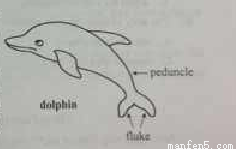题目内容
12.The car is running at aspeed/rate(速度)of eighty kilometers an hour.分析 speed
解答 根据句意"这辆车正以每小时八十千米的速度行驶",at a speed of…意为"以…的速度",为固定短语,符合句意.
点评 考查固定短语搭配.at a speed of短语中的冠词用a或the区别不大,可以认为一样.

练习册系列答案
相关题目
7.It has been argued by some that gifted children should be grouped in special classes,The (1)argumentshas been on the belief that in regular classes these children are held back in their intellectual (智力的) growth by (2)learning situation that has designed for the (3)average children.
There can be little doubt that (4)specialclasses can help the gifted children to graduate earlier and take their place in life sooner.However,to take these (5)childrenout of the regular classes may create serious problems.
I observed a number of (6)intelligentchildren who were taken out of a special class and placed in a (7)regular class.In the special class,they showed little ability to use their own judgment,relying (8)slightly on their teachers'directions.In the regular class,having no worry about ke(http://www.unjs.com)eping up,they began to reflect (9)quicklyon many problems,some of which were not on the school program.
Many are concerned that gifted children become (10)boredand lose interest in learning.However this (11)concernis more often from parents and teachers than from students,and some of these(12)adults simply conclude that special classes should be set up for those who are(13)talented.Some top students do feel bored in class,but why they (14)feel so goes far beyond the work they have in school.Studies have shown that to be bored is to be anxious.The gifted child whop is bored is an (15)anxiouschild.
There can be little doubt that (4)specialclasses can help the gifted children to graduate earlier and take their place in life sooner.However,to take these (5)childrenout of the regular classes may create serious problems.
I observed a number of (6)intelligentchildren who were taken out of a special class and placed in a (7)regular class.In the special class,they showed little ability to use their own judgment,relying (8)slightly on their teachers'directions.In the regular class,having no worry about ke(http://www.unjs.com)eping up,they began to reflect (9)quicklyon many problems,some of which were not on the school program.
Many are concerned that gifted children become (10)boredand lose interest in learning.However this (11)concernis more often from parents and teachers than from students,and some of these(12)adults simply conclude that special classes should be set up for those who are(13)talented.Some top students do feel bored in class,but why they (14)feel so goes far beyond the work they have in school.Studies have shown that to be bored is to be anxious.The gifted child whop is bored is an (15)anxiouschild.
| 1.A.principle | B.theory | C.arguments | D.classification |
| 2.A.designing | B.grouping | C.learning | D.living |
| 3.A.smart | B.curious | C.mature | D.average |
| 4.A.regular | B.special | C.small | D.creative |
| 5.A.children | B.programs | C.graduates | D.designs |
| 6.A.intelligent | B.competent | C.ordinary | D.independent |
| 7.A.separate | B.regular | C.new | D.boring |
| 8.A.specially | B.slightly | C.wrongly | D.heavily |
| 9.A,directly | B.cleverly | C.voluntarily | D.quickly |
| 10.A.doubted | B.bored | C.worried | D.tired |
| 11.A.concern | B.conclusion | C.reflection | D.interest |
| 12.A.students | B.adults | C.scholars | D.teachers |
| 13.A.talented | B.worried | C.learned | D.interested |
| 14.A.believe | B.think | C.say | D.feel. |
4.Modern technology has enabled us to have easier to huge amount of beneficial information,which was only found in paper books.( )
| A. | admission | B. | passage | C. | solution | D. | access |
16.-I'd like to borrow this book,but I couldn't find it on the shelf.
-The book has been checked out.I'll let you know as soon as it _____.( )
-The book has been checked out.I'll let you know as soon as it _____.( )
| A. | is returned | B. | will be returned | ||
| C. | is returning | D. | returned |
2.We have learned from the story that _____ is most valuable is not _____ we have in our lives but_____ we have in our lives.( )
| A. | what; that; that | B. | What; what; what | ||
| C. | What; that; what | D. | What; what; who |
